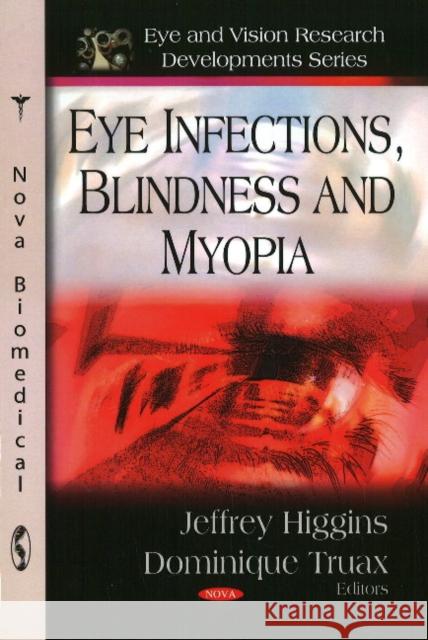Eye Infections, Blindness & Myopia » książka
Eye Infections, Blindness & Myopia
ISBN-13: 9781606926307 / Angielski / Twarda / 2009 / 274 str.
Bacterial eye infections are among the leading causes of vision loss and ocular morbidity, yet the widespread use of antibiotics, particularly in combating systemic infections, has led to increased resistance. This book describes studies that have reported resistance to fourth-generation fluoroquinolones used for treating ocular infections. Achieving optimal therapeutic outcomes, which will require new antimicrobial agents with less potential for promoting resistance is also discussed. This book explores endophthalmitis as an intraocular inflammation mainly involving the ocular fluids. Pseudomonas aeruginosa is also reviewed, which is a major opportunistic pathogen and a common cause of bacterial keratitis, especially in contact lens wearers. The new classes of antibiotics have offered alternatives to treat this otherwise antibiotic-resistant bacteria but reports of continued resistance indicate the need for novel areas such as the use of immunizations with attenuated strains of bacteria and treatment with non-antibiotic compounds. Myopia is the most common eyesight problem in the world and is often mild and there are no serious problems. However, it may sometimes lead to blindness. This book explores laser as a way to correct myopia as well as a study of myopia.Finally, this book includes two approaches to resolve myopic macular retinoschisis; one is an approach from inside the eye and the other is from outside the eye. An investigation of eyes for corneal, refractional, and biometric changes, which resulted in the conclusion that there is a statistically significant myopic shift after scleral buckling surgery, is evaluated.











